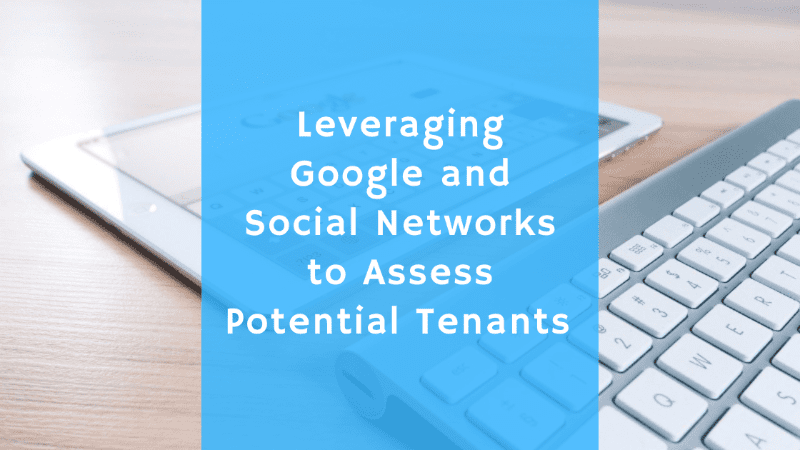Whether you are a landlord, property manager or insurer, one of the most important aspects of managing rental properties is selecting reliable and responsible tenants. This selection requires a comprehensive evaluation process, and, in today’s digital age, consulting information online has become an invaluable tool. Through a simple Google search, you can access a large amount of people’s information available in public sources of social networks, blogs, news articles, etc., which complement traditional tenant selection methods.
In this post we are going to talk about the benefits of consulting information on publicly available sources to evaluate potential tenants. While it is essential to respect the limits of privacy and maintain ethical practices, these digital resources can provide a deeper understanding of applicants and help you make well-informed decisions.
Through a Google search, you can get a professional background, relevant news or online presence. On the other hand, social media can offer insight into a potential tenant’s lifestyle, interests, and communication style.
We are also going to talk about the importance of following legal requirements and ethical practices. We will emphasize the need to obtain appropriate consent, respect privacy rights, and ensure compliance with fair housing laws and anti-discrimination regulations throughout the tenant screening process.
However, we must remember that while the information we find online can be invaluable in helping you select tenants, it should be used in conjunction with methods such as background checks, credit reports, and rental references. By combining these approaches, you can get a more complete picture of potential tenants, allowing you to make informed decisions.
What information could Google provide us with about a potential tenant?
Google can provide various types of information about a potential tenant, depending on what is publicly available. Here are some ways Google can provide information about a potential tenant:
- Online Presence: Google searches may reveal information about the potential tenant’s online presence, such as social media profiles, personal websites, or professional profiles. This can give you insights into their interests, lifestyle, and behavior to some extent. However, it’s important to respect privacy boundaries and not base decisions solely on personal information unrelated to their suitability as a tenant.
- News and Media: If the potential tenant has been involved in any notable events or activities that have been covered by news outlets, Google searches may provide relevant news articles. This can help you gain insights into their public reputation or any significant events they may have been involved in.
- Professional Background: Searching for the potential tenant’s name or professional details may yield information about their employment history, past work experience, or any professional achievements or recognition they have received. This can help you verify the accuracy of the information provided in their application.
- Online Reviews: In some cases, you may come across online reviews or feedback about the potential tenant from previous landlords or individuals who have interacted with them in a rental context. While it’s important to approach online reviews with caution and consider their credibility and relevance, they can provide additional perspectives on the tenant’s behavior and rental history.
- Legal Records: Google searches may uncover public legal records related to the potential tenant, such as past court cases, criminal records, or eviction records if they are available online. However, it’s important to note that accessing certain types of legal records may require specific authorization or access to specialized databases.
As we discussed earlier, it is crucial to address the use of information obtained from Google searches ethically and within the limits of privacy laws. It is critical to follow proper tenant screening procedures and obtain consent for background checks while complying with applicable laws and regulations.
What important information could we find on social media about a potential tenant?
Here are some types of information that could potentially be found on social media platforms:
- Personal Information: Social media profiles may provide insights into a potential tenant’s personal information such as their full name, location, age, and sometimes contact details.
- Employment and Education: Social media profiles can sometimes reveal information about a potential tenant’s employment history, current job, or educational background. This can help verify the accuracy of the information provided by the tenant in their application.
- Lifestyle and Interests: Social media posts and activities can give you a glimpse into a potential tenant’s lifestyle, hobbies, interests, and behavior. You may come across photos, status updates, or discussions that provide insights into their preferred activities or lifestyle choices. However, it’s important to consider the relevance and fairness of using this information in the tenant evaluation to avoid unwanted biases in decision making processes.
- Communication and Behavior: Social media platforms can offer a sense of a potential tenant’s communication style, attitude, and behavior. You may observe their interactions with others, the tone of their posts or comments, and how they represent themselves online.
- Red Flags or Inconsistencies: In some cases, social media research may uncover red flags or inconsistencies that warrant further investigation. For example, if a potential tenant claims to have a stable job but their social media posts indicate otherwise, it may raise questions about their credibility.
As in the case of Google searches, it is essential to approach social media research with caution and consider the limitations and potential biases associated with reporting online.

